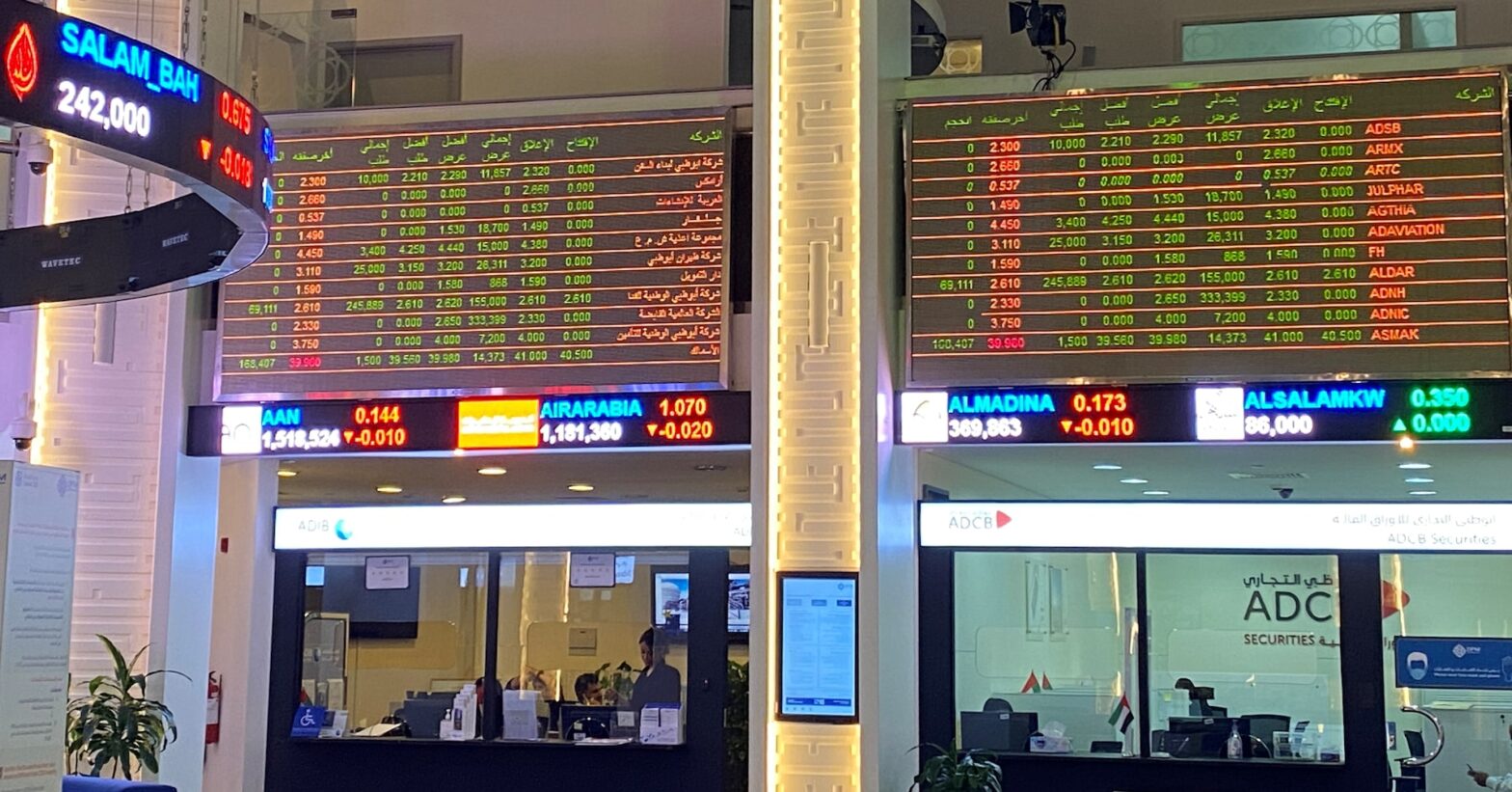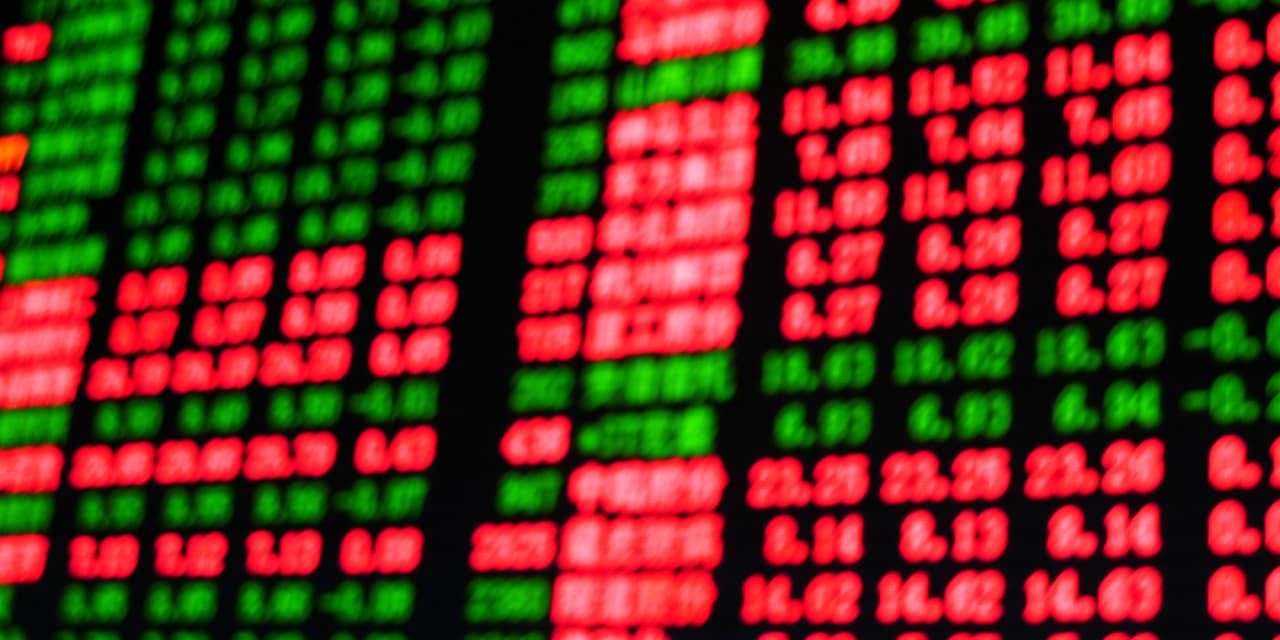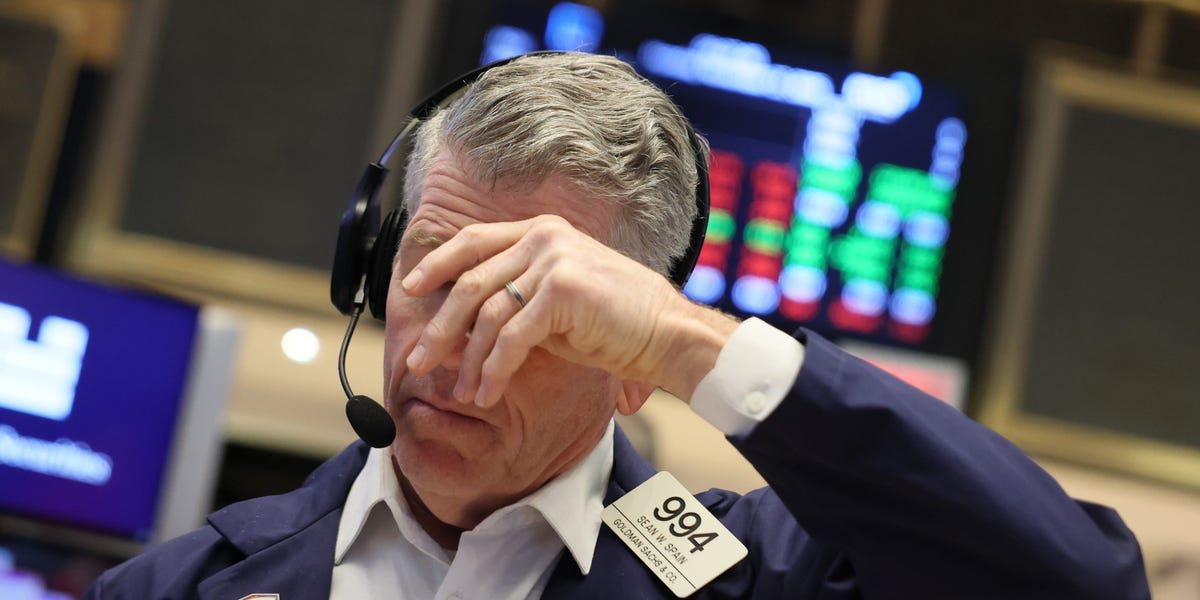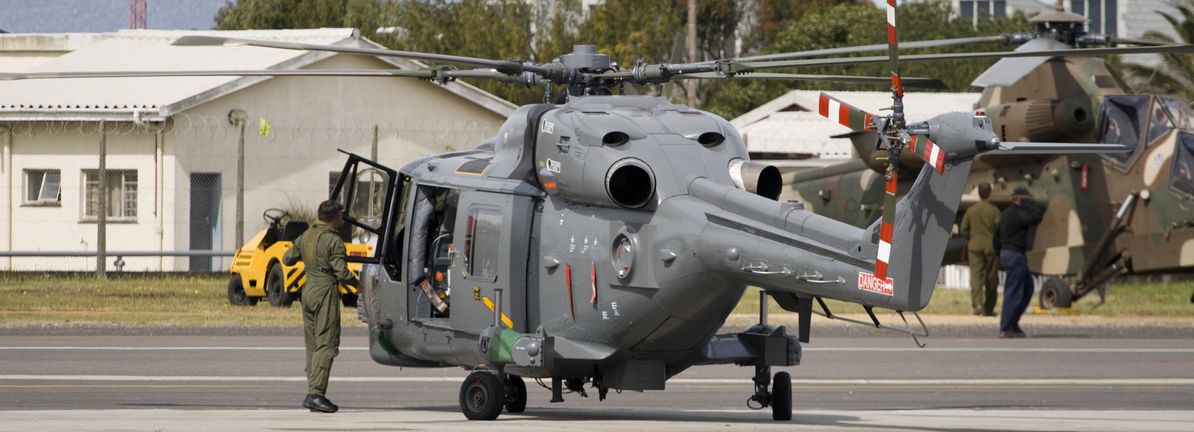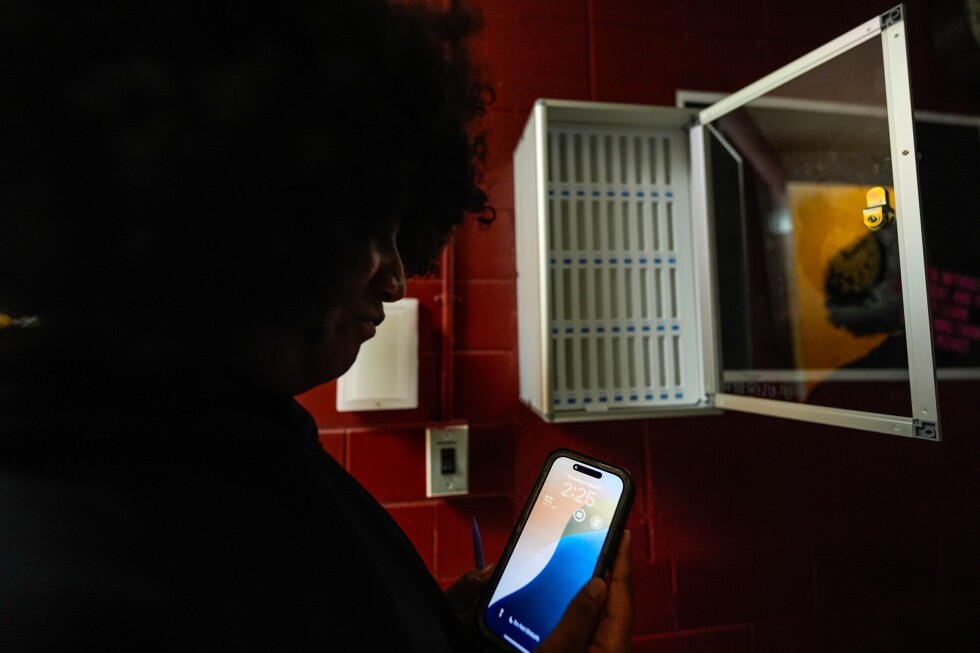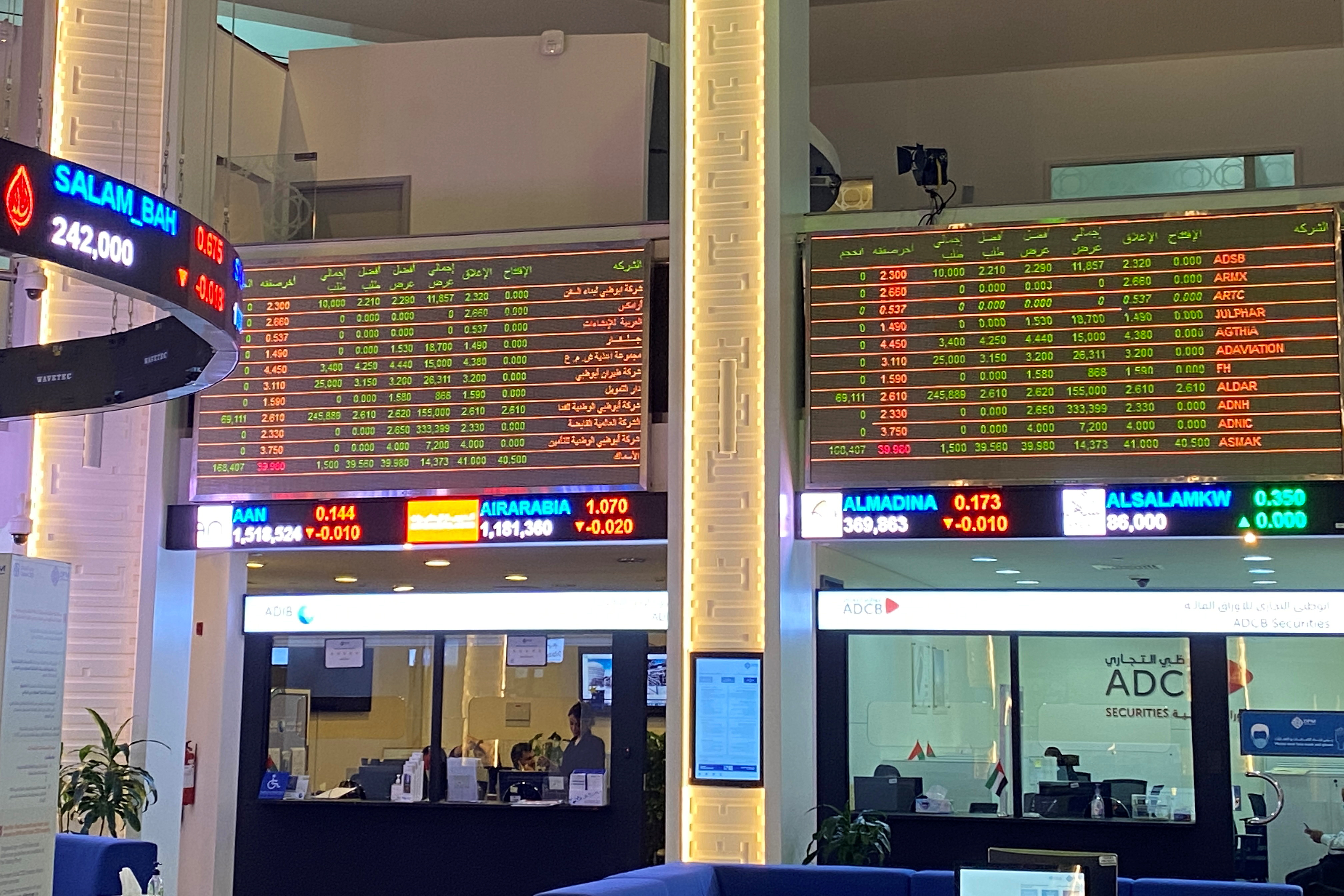
Electronic boards showing stock information are pictured at the stock market, in Dubai, United Arab Emirates, November 5, 2020. REUTERS/Abdel Hadi Ramahi/File Photo Purchase Licensing Rights, opens new tab
April 14 (Reuters) – Most stock markets in the Gulf ended lower on Sunday after Iran launched a retaliatory attack on Israel that raised the threat of a wider regional conflict.
Last week, Iran said it would take revenge on Israel for an air strike that killed two of its generals and five military advisers at its embassy compound in Damascus, raising the risk of further escalation in conflict in the Middle East.
Saudi Arabia’s benchmark index
finished 0.3% lower, after falling about 2% during the session, with the country’s biggest lender Saudi National Bank
tumbling 3.3%.
Elsewhere, flour producer First Milling Company
dropped 1.4% as the stock traded ex-dividend.
Bucking the market, renewable energy utility ACWA Power
jumped 6.7%, rising for a fifth consecutive session.
On April 3, ACWA Power announced the start of partial commercial operations of its Sirdarya gas-turbine plant in Uzbekistan. Its share price was catching up on Sunday as the market reopened after being closed last week for the Eid holiday.
In Qatar, which was also closed for Eid last week, the benchmark stock index
fell 0.8%, as most of its constituents were in negative territory including Qatar National Bank
, which was down 1.2%.
Israel had been bracing for an Iranian response to the Damascus consulate strike since last week, when Iran’s Supreme Leader Ayatollah Ali Khamenei said Israel “must be punished and shall be” for an operation he called equivalent to one on Iranian soil.
Oil prices – a catalyst for the Gulf’s financial markets – are expected to rise on Monday after Iran’s attack on Israel over the weekend, analysts said on Sunday, but further gains may depend on how Israel chooses to retaliate.
The Reuters Daily Briefing newsletter provides all the news you need to start your day. Sign up here.
Reporting by Ateeq Shariff in Bengaluru; Editing by Susan Fenton
Our Standards: The Thomson Reuters Trust Principles., opens new tab

